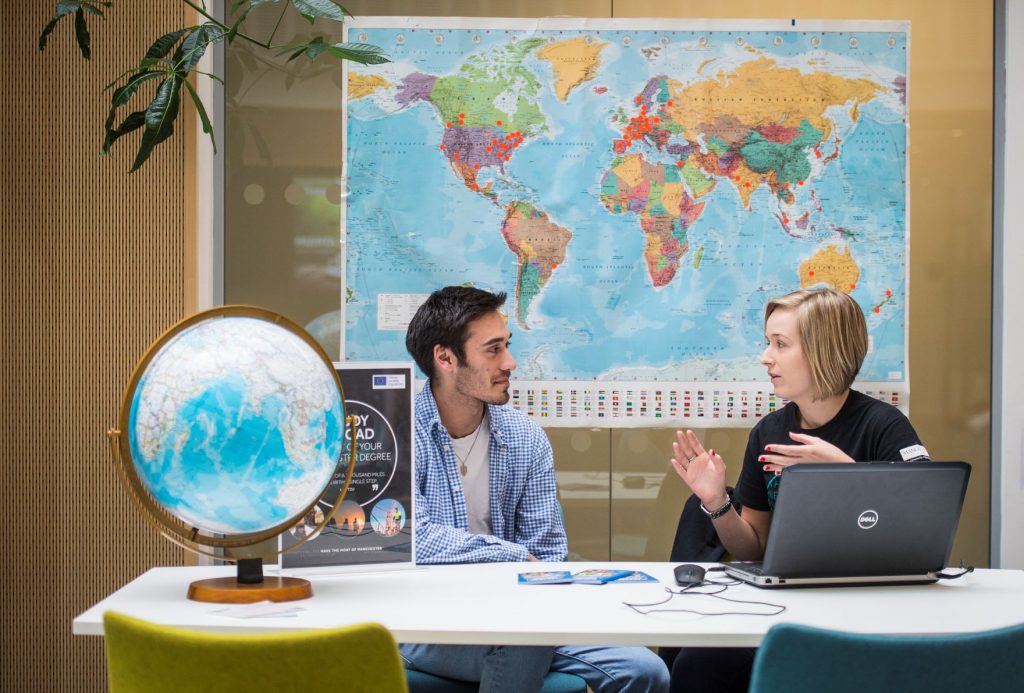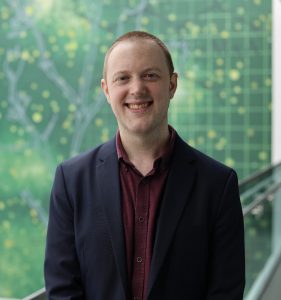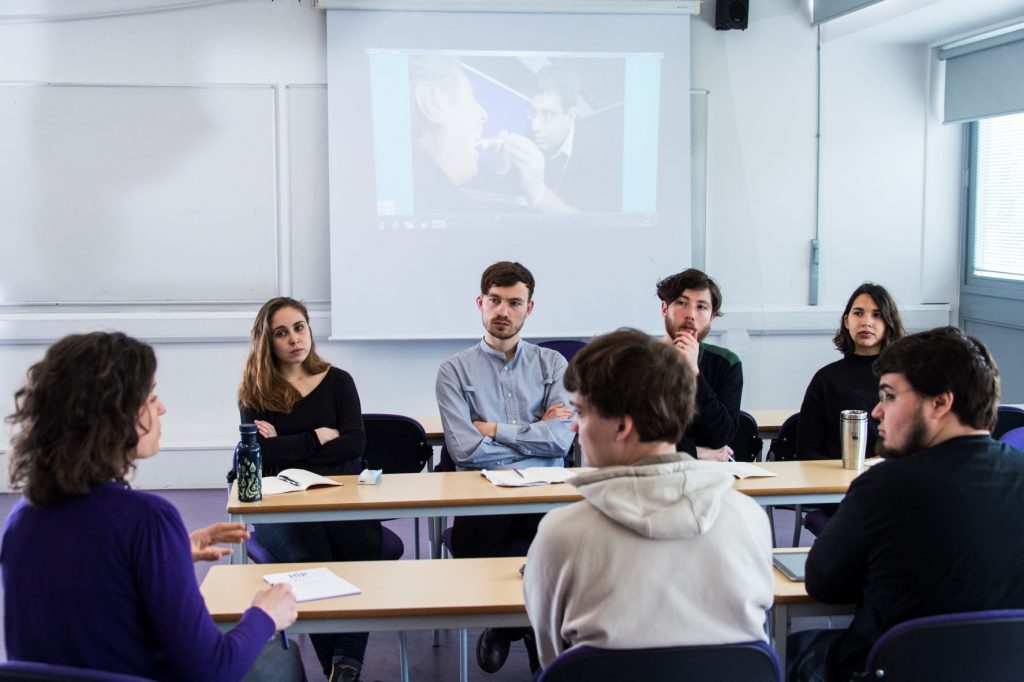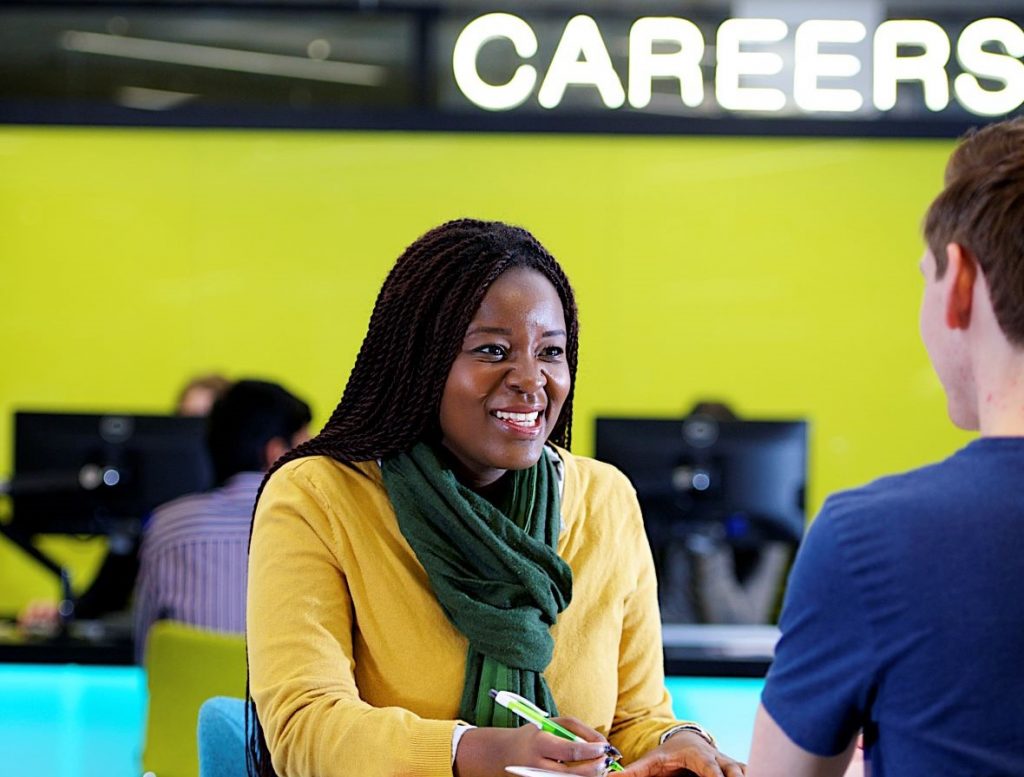
Exploring Global Social Challenges at Manchester
We spoke to Dr. Jon Davies, Programme Director for the new BA Global Social Challenges, to discover what this new degree is all about, how it works and who it’s aimed at.
Hello! Who are you and what’s your connection to this degree?
I’m a lecturer in Criminology. My research interests are largely based on the areas of white collar, corporate and state crime as well as human trafficking and exploitation.

Dr Jon Davies
I’m also the Programme Director for the new BA Global Social Challenges degree that is launching in September 2023. I’ve been involved in the programme development from the start. That’s included refining where we want to go with the degree, designing new content, and of course, working closely with colleagues across the whole of the School of Social Sciences, the Faculty of Humanities and the University more generally to ensure that we create a high-quality degree where students get the best experience possible.
Tell us a bit about how this degree came about?
Within the School of Social Sciences, we felt that there was a need to build on the successes that individual departments have already developed and to pull together a number of disciplines when it comes to tackling some of the world’s greatest challenges and the harms that emerge from these.
What we’re doing here is, in many respects, fairly unique. This degree is what we call ‘transdisciplinary’ – the issues we examine will receive input from departments across the School of Social Sciences, such as criminology, philosophy, politics, sociology, and more. We will build in multiple perspectives and give students a much more holistic overview of the topics they cover.
What exactly is a ‘global social challenge’?
A global social challenge refers to critical issues and problems that people face across the world – sometimes with significant consequences for everyone or for specific areas and groups. These challenges often result in what we call ‘social harm’, such as physical, psychological, or financial impacts. Harms can affect individuals, groups, as well as other entities such as businesses. We will be looking at how these harms can be created, understood, and mitigated by structures and institutions within a society, by social policy, and by a broad range of interventions.
For example, we might ask what the role of the government is on immigration policy and how that impacts human trafficking. It’s a broader and more nuanced way of examining the problem, rather than viewing the issue of human trafficking in terms of ‘bad’ and ‘good’ people, ‘perpetrators’ and ‘victims’.
So how will the degree work on a nuts-and-bolts level? What will the academic experience be like?
The degree will consist of core and optional units. Over the three years, the core units will cover the themes of social injustice (year one), violence and the state (year two) and global governance (year three) – which in our view, most if not all global challenges relate to.
Within these themes, we will explore particular social challenges and harms that emerge through deep dives and case studies. These discussions will largely be led by the students themselves – we don’t want to just dictate what global social challenges are, we want to encourage our students to lead the way, particularly those who might come from the global South and have radically different views on which harms are most pressing and which responses most effective.

Students discuss matters in a small-group seminar
In terms of teaching, aside from the traditional lectures and tutorials, our intention is to do a bit of ‘team teaching’ via interactive workshops, and have two or more academics in the same classroom, in the same week, to bounce ideas off each other and off the students. We will also host round-table discussions with academics from multiple departments, as well as guest speakers/practitioners to help frame these issues through a transdisciplinary perspective.
Another important part of this degree is its focus on research and analytical skills. Our first-year students will study a unit called Research and Academic Skills, which will include quantitative work and analytical skills. Then, in the second year, students will study a unit on Understanding Data to gain further insight into quantitative and qualitative data approaches. These skills are vital to both the degree and to graduate employability.
And what about the optional units?
While the core units will provide the ‘spine’ of the degree, students will be able to personalise their course by selecting optional units from across the School of Social Sciences and the wider university. The optional units also relate to the topic of Global Social Challenges but are hosted by other departments – so, for example, a student might choose to study the Politics of the Global Economy (a unit from our Politics department) or Serious and Organised Crime (from our Criminology department). There will also be options from UCIL – the University College for Interdisciplinary Learning – where students will be able to study selected units that are open to everyone across the university and cover broader perspectives and topics from beyond the social sciences.
Students will have opportunities to go on field trips to help frame some of the issues that we talk about. We’re currently planning a trip to Krakow and Auschwitz Birkenau in the second year during our exploration of violence and the state. Students who wish to can also take opportunities to study abroad for a year or undertake a paid Professional Experience Year.
If you were a student about to embark on this degree, what would you be most excited about?
I think that I would be most looking forward to the dynamic discussions that will take place, with people from different backgrounds who may have different opinions, and how these discussions will lead to a new understanding of the processes and solutions of the challenges that we explore. Given what’s going on in the world, I would like to learn more about global issues with finite resources and nuclear power – it’s something very relevant and current that seems to be, at least in this country, leading to lots of ancillary problems and challenges.
How will this degree help me find a job? And what kind of job?
One key thing that we’ve done whilst structuring this degree is to prioritise the development of soft skills and employability. These will be embedded in the core units and will give students opportunities to work in teams, communicate and argue with peers, take on leadership roles, deliver presentations and develop their digital and data analytics skills. If you look at contemporary discussion, views are increasingly polarized and entrenched. The skills of being able to examine an issue, take a position on it, justify and defend it in a professional way without descending into the usual kind of mud-slinging that is characteristic of, say, social media, are incredibly important and useful, not just in searching for jobs but in life too. In our view the transdisciplinary style of the degree aids this approach.

Take advantage of our award-winning Careers Service
The skills that will be developed during the degree mean that students will be able to pursue a wide range of careers – we want to keep as many doors as possible open for our graduates. Some of the expected trajectories include working for national or international organisations, be they government or civil service departments, in the third sector, in charities and in interest groups. The private sector will also be open to our graduates: businesses increasingly need to be aware of, and address, global challenges in some way, be they at a local, national or international level.
And tell us a bit about who the degree is aimed at. If you were reading personal statements, what would you like to see?
People with open minds who have an interest in social issues, problems and challenges. People who are willing to consider complex global problems from multiple perspectives and debate them in open and civilised ways. But also students who will enjoy the degree that we’ve created, who will have fun taking part in discussions and building on issues that we explore.






0 Comments